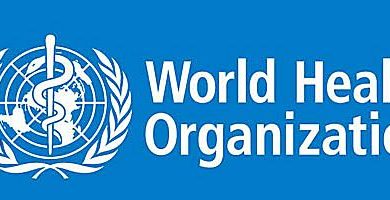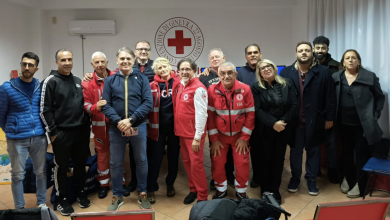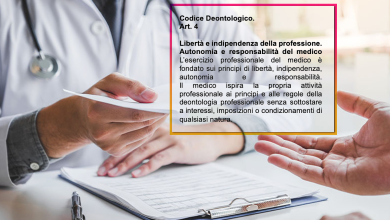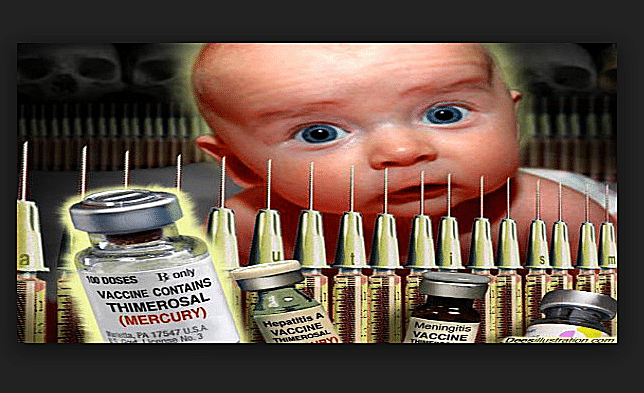
Professor Grignolio speaks, professor of the history of medicine and author of a book that debunks the myths against vaccines: «Because of the internet, people no longer trust professionals. We live in an era of post-modern relativism that is increasing distrust of science."
 Vaccines are one of the most important scientific discoveries in the world, yet, especially in recent times, they are questioned by a slice of public opinion. The first consequence is the drop in vaccinations and for this reason the World Health Organization recalled our country last year. How is it possible that more and more parents, even educated ones, refuse to have their children vaccinated, putting at risk not only their own offspring but also all those in contact with their children, for example a pregnant woman or another child with immune system?
Vaccines are one of the most important scientific discoveries in the world, yet, especially in recent times, they are questioned by a slice of public opinion. The first consequence is the drop in vaccinations and for this reason the World Health Organization recalled our country last year. How is it possible that more and more parents, even educated ones, refuse to have their children vaccinated, putting at risk not only their own offspring but also all those in contact with their children, for example a pregnant woman or another child with immune system?
This question is answered by Andrea Grignolio, professor of the history of medicine at the Sapienza University of Rome, author of the book that came out a few days ago “Who's Afraid of Vaccines?”(Codice editions, Turin 2016, pages 208, €14, preface by Riccardo Iacona, afterword by Gilberto Corbellini). Grignolio addresses the issue from a historical point of view, investigating the biological, psychological and evolutionary reasons that lead us to show distrust and panic towards vaccines and science in general, very often because they are influenced by the charlatan on duty. After a brief history of the anti-vaccine movements, the author, sharing with the reader a lot of data and conclusions of experiments conducted on groups of parents, outlines a real identity card of the anti-vaccinist - with even surprising results - and dismantles, again with scientific evidence, all the hoaxes that circulate on the net about vaccines. Having done this, Grignolio wonders how to stem the phenomenon culturally and how a democratic state that wants to reconcile freedom of treatment with the protection of public health should react. It's a book for everyone, parents, industry experts, science journalists, politicians.
Professor Grignolio, shall we try to outline an identikit of those who are afraid of vaccines, also thanks to the new neuropsychological analyses?
Parents who are afraid of vaccines are forty-year-olds who have a medium-high cultural level and are economically well-off. Neuropsychological research tells us that this kind of people has a high perception of risk because they have the cognitive tools to go on the internet and read all the information, mostly wrong, that the network reports and therefore they are the only ones who paradoxically expose themselves to the excessive, contradictory and risky information load that the network reports on the subject of vaccines. Furthermore, their social status often brings them closer to naturist approaches - I am thinking of alternative medicines, homeopathy, vegans - which tend to be against pharmacological treatments, in particular vaccines.
Let's try to give a concrete example: a person who graduated with honors in mathematics, a high school teacher is against vaccines. Why is it captured by information from anti-vaccine sites going on the internet?
There are experiments in experimental psychology —which I cover in the book— where it has been explained to graduate parents that vaccines have been shown not to be dangerous with data in hand, they have declared that they have understood the data on their safety and efficacy, they have demonstrated that they understood that vaccines do not create autism, yet, when they were asked at the end of the experiment if they trusted vaccines more, they absolutely did not change their minds, they continued to refuse vaccines. Indeed, in the sample there was a slight upsurge, ie in some people the opposition was even strengthened rather than attenuated. The so-called "corrective information", i.e. those aimed at contradicting the beliefs of people who are radically opposed to vaccines, reinforce "their cognitive biases", their prejudices, and are not useful in communicating with a part of the opponents, the "fundamental" ones . Here, the case you described is a typical case of these: intelligent people, who understand a problem, but cognitively and emotionally reject it. I am well aware that these cases are counterintuitive, but the cultural level and cognitive abilities do not always allow us to correctly assess the risk. Poor risk assessment, as Kahneman the Nobel Prize winner in economics explains well, is a long old evolutionary legacy that is often independent of the cultural level: otherwise we would have that those with a good cultural level do not refuse vaccines, and instead are not so, or at least not always.
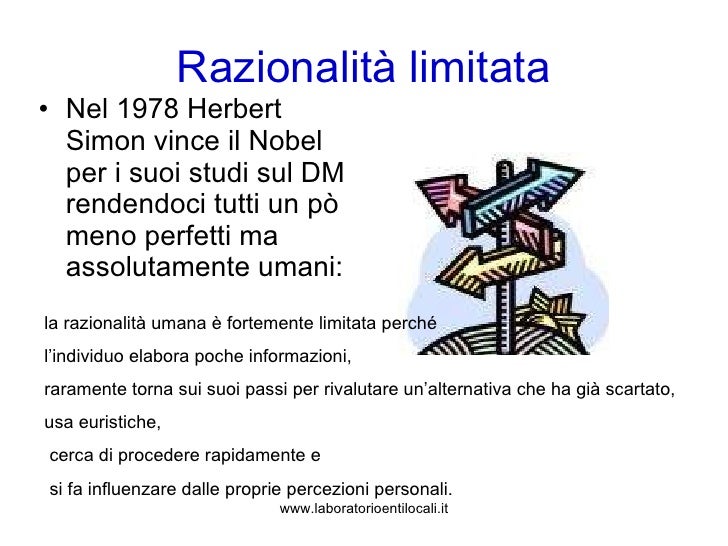 Are you referring to what you describe in your book as "bounded rationality"?
Are you referring to what you describe in your book as "bounded rationality"?
The key to reading my book, that is, the attempt to understand why a mathematics graduate cannot understand data well, was one of the main reasons that pushed me in this research direction. I found the keystone precisely in the concept of "limited rationality" of the Nobel Prize Kahneman who revolutionized the economy: until the end of the 80s it was always thought that Homo oeconomicus reasoned linearly and therefore made economic types that are advantageous for him and for others. Instead, it was understood with cognitive psychology experiments carried out by Kahneman that we make choices based on limited rationality, that is, by misjudging risk and probability, because we have operational memory and calculation limits, and this because our brain has adapted to a biological context —that of the Pleistocene savannah where probabilistic or long-term perspective reasoning was not required to survive— which today makes it unsuitable for evaluating long-term forecasts, for calculating uncertainties, probabilities and above all risks . Our brain has not adapted to today's problems and therefore our brain crashes. To give an example, it is as if we were trying to install modern software on old hardware from the 80s, the latter would struggle, would be able to do some operations, others would not, and other times it would crash. Here, our brain struggles to handle the information concerning risk, and the reaction is generally to avoid risk information contexts, or make decidedly "sub-optimal" choices.
In your book, you report the data of a 2014 Censis report on the relationship between parents and vaccinations which indicates that "they decide not to vaccinate their child on the basis of information found on the internet" as many as 7.8 percent of parents, a share that becomes even more significant if analyzed by educational qualification. What weight does the internet have in misinformation about vaccines?
The role that the internet and these sites play is an important one because both in Italy and in Europe and the United States there are 65% - 75% of sites that are against vaccines compared to 35 - 40% that are in favor of vaccines. This means that a mother who goes on the internet and types in the word vaccines or pediatric vaccinations is more likely to find such news false and terrifying than the authentic ones. However, a distinction must be made between parents who are hesitant about vaccinations and the so-called fundamentalists. These two groups that oppose vaccines need to be treated differently. Those who are hesitantly opposed to vaccines, that is, those who are uncertain, who want to know more, simply advise those people to go to the official websites or meet the pediatrician, hoping that he is not, however, a homeopathic pediatrician. It should be noted that 99.9% of paediatricians are in favor of vaccines and it is precisely paediatricians —as I demonstrate in the book with some surveys— who, of all categories of doctors, vaccinate their children the most.
 You dedicate an important part of your book to the doctor-patient relationship…
You dedicate an important part of your book to the doctor-patient relationship…
The doctor-patient relationship is fundamental because it has changed. While in the 1950s nobody disregarded the indications of a doctor, especially a pediatrician who told you to vaccinate your child, today the relationship with the doctor but in general with the authority - think of the relationship between teachers and pupils - is changed, there is no longer the paternalistic attitude of the doctor, which can be a positive fact in itself, but not always. Today the doctor-patient relationship has changed, the patient wants to have an active part in therapeutic decisions, and this is a positive thing, but when these choices go beyond and totally conflict with the doctor's decisions, i.e. when the patient decides for himself what is a therapy and what is not, we have negative effects. The case of vaccines is part of this negative change.
«There are experiments in experimental psychology where graduate parents have been explained, it has been demonstrated that vaccines are not dangerous with data in hand, they have declared that they have understood the data on their safety and efficacy, they have shown that they understand that vaccines do not create autism, and yet, when they were asked at the end of the experiment whether they trusted vaccines more, they absolutely did not change their minds, they continued to refuse vaccines»
The web, as we well know, is the virtual place of scientific hoaxes: many are read about vaccines. I would like to try to name a few with you and ask you to summarize the facts and data that contradict them: for example, that they are only a gain for the pharmaceutical industries
That's not true: in 2015 Aifa - the Italian Medicines Agency - published the data on expenditure for all drugs in 2015 and that for vaccines does not reach 2%.
Moving on: Vaccines cause autism…
It is a scientific fraud invented by Andrew Wakefield in 1998 for economic interests and for this he was disbarred for life from the British medical register and his article in the Lancet was withdrawn.
…have dangerous side effects and are toxic…
 It's not true: regulatory agencies around the world and various international scientific societies prove that they are not. The response of anti-vaccine advocates to this avalanche of data is always the same: all corrupt or colluded with Big Pharma. But it is an untenable thesis, as an argument in the book. While it may be true that in some individual cases there is corruption or collusion or conflict of interest, it cannot be assumed that all researchers in the world are corrupt. Antivaccine advocates argue that there is a drug company conspiracy to silence dissenting voices, but it is impossible to silence all scientific journals, all researchers, and all peer reviewers. The fact is, one vaccine can cause the average only one serious adverse effect (but not death) out of about a million or two doses. Aspirin, which is one of the most used drugs in the world, also carries risks, like all drugs in its category (NSAIDs) such as antipyretics and anti-inflammatories; in Spain, for example, NSAIDs and aspirins kill 15.3 people out of 100,000 patients who use them for a long time, thus causing death 1,500 times more likely than vaccines. It's even more dangerous to eat peanuts or ride around without a helmet. In 2014 in Italy there were 55.6 cases of death (and more than 4000 of injuries) in road accidents for every million inhabitants, against one person in a million who shows a serious adverse reaction towards the vaccine. Not vaccinating a child is much more dangerous than sending him around on a moped.
It's not true: regulatory agencies around the world and various international scientific societies prove that they are not. The response of anti-vaccine advocates to this avalanche of data is always the same: all corrupt or colluded with Big Pharma. But it is an untenable thesis, as an argument in the book. While it may be true that in some individual cases there is corruption or collusion or conflict of interest, it cannot be assumed that all researchers in the world are corrupt. Antivaccine advocates argue that there is a drug company conspiracy to silence dissenting voices, but it is impossible to silence all scientific journals, all researchers, and all peer reviewers. The fact is, one vaccine can cause the average only one serious adverse effect (but not death) out of about a million or two doses. Aspirin, which is one of the most used drugs in the world, also carries risks, like all drugs in its category (NSAIDs) such as antipyretics and anti-inflammatories; in Spain, for example, NSAIDs and aspirins kill 15.3 people out of 100,000 patients who use them for a long time, thus causing death 1,500 times more likely than vaccines. It's even more dangerous to eat peanuts or ride around without a helmet. In 2014 in Italy there were 55.6 cases of death (and more than 4000 of injuries) in road accidents for every million inhabitants, against one person in a million who shows a serious adverse reaction towards the vaccine. Not vaccinating a child is much more dangerous than sending him around on a moped.
…and weaken the immune system
That's not true, they reinforce it. The immune system has evolved to be stimulated. There are many experiments which prove that the immune system of a vaccinated person is not weaker than a non-vaccinated one, just as much literature demonstrates that whoever is vaccinated is not at all more in poor health than someone who is not vaccinated, if anything, the unvaccinated are at risk. In the book I dedicate a paragraph to this and cite various examples, here I only say that in 2014 the journal Science published a review of the epidemiological data of the last few decades, even going back to when there were no vaccinations and taking children from various countries, Well this article demonstrates that children vaccinated against measles have better health and live longer. They are data not opinions, whoever claims the opposite must prove it with as many data.
«Aspirin, which is one of the most used drugs in the world, also carries risks, like all drugs in its category (NSAIDs) such as antipyretics and anti-inflammatories; in Spain, for example, NSAIDs and aspirins kill 15.3 people out of 100,000 patients who use them for a long time, thus causing death 1,500 times more likely than vaccines. It's even more dangerous to eat peanuts."
In the book you mention several times, without ever naming it, a political movement that is the bearer of anti-scientific theses on vaccines: can we say that you are referring to the Five Star Movement?
That's it. I didn't omit it out of cowardice, but because I believe that it is a transversal problem in some ways and it makes no sense to accuse a movement of a responsibility that is also collective. If it is true that conspiracy theories against vaccines or GMOs are widespread in the 5-star movement — just go to youtube to see Grillo himself reporting baseless things on these two issues — it is also true that fear of vaccines exists in various other parties: I invite anyone to do a check on the interventions of the House and Senate parliamentarians where you can read several questions against chemtrails; a disheartening picture emerges that comes from the right, from the center and from the left
St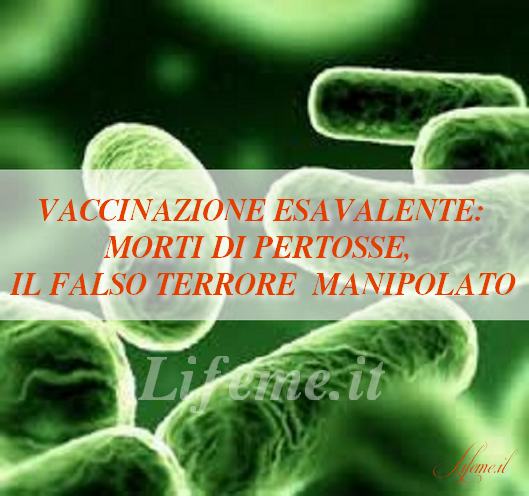 and today the prejudice against vaccines and science in general is increasing, who to blame? To the scientists who have been closed in their laboratories for too long, to the little cultural investment in scientific journalism, to the functional illiteracy that distinguishes us?
and today the prejudice against vaccines and science in general is increasing, who to blame? To the scientists who have been closed in their laboratories for too long, to the little cultural investment in scientific journalism, to the functional illiteracy that distinguishes us?
We all have responsibilities. Italy has no more than others. The actors I deal with in the book are at least four: science communicators who until recently were influenced by a trend, that of the so-called "post-modern relativism" (a perspective that does not believe in the principle of scientific objectivity and that considers any data or evidence as an unreliable cultural construct that varies over time) which caused them to view science with suspicion. Scientists who have too often ignored their social role should have left the laboratories and gone to talk to society, to explain the importance of the scientific enterprise and the values of the scientific method to implement democratic rules. Those few who have done so, with a few exceptions, have not always been able to convey the right messages, that is, using warm, engaging and informative communication. Undoubtedly, politics also bears a great responsibility. Abroad there are so-called scientific adviser who are third parties, independent, with no conflict of interest who bring politics closer to science in a correct way, avoiding fraud and advising politics on which choices to focus on in order to have useful repercussions for citizens. The last point concerns us as citizens, our responsibilities. Today many are educated on the internet and think they can answer questions related to animal testing, GMOs, embryonic stem cells or vaccines for example by reading two pages on wikipedia, and then want to enter the public debate by saying their cobbled opinion. If we want democracy to be participatory, as many are clamoring for, we need to have expertise and knowledge based on data and facts.
You spoke of democracy. Also on the autismovaccini.org website we read "did you know that it is possible to vaccinate only after consultation and authorization of the vaccinated person since vaccination constitutes a crime of personal injury by law?". So in a democracy everyone does what they like and is therefore free not to get vaccinated?
I would like to report data and historical experiences useful for this problem. Libertarians argue precisely that the state should not enter into people's private lives and establish mandatory choices. We need to see what is happening in the world: in Europe there are 15 states that do not oblige and 14 that oblige vaccination, among the latter there is Italy and France. In the USA the situation is composite, some States leave them free, others leave them free only after having signed a series of bureaucratic protocols that explain the responsibilities of anti-vaccine parents, up to the case of California which has had several measles epidemics and which is therefore use of the obligation. Our Constitution opens to the obligation, just read the article 32: “The Republic protects health as a fundamental right of the individual and interest of the community, and guarantees free care to the indigent. No one can be forced to undergo a certain medical treatment except by law". That is, the right to health can become an obligation to health when a health problem affects everyone and not the individual citizen. The classic case is that of the TSO - compulsory medical treatment - to prevent a mentally ill person from harming himself and others: it is a case in which the State obliges. The choice not to vaccinate a child is in fact not a subjective choice as the anti-vaccine advocates say, but a collective choice because the individual's choice falls on others, and also in a very dangerous way to the point of putting the lives of others at risk. It is the same difference between driving without a seat belt, a situation in which I can demand freedom because it involves a risk only for ourselves, and driving without brakes, or rather a situation in which one is dangerous not only if themselves but above all others. Demanding freedom on vaccination is like demanding the freedom to drive around town without brakes. It is obvious that the freedom of individuals stops where the safety of other individuals begins.
 Red Ronnie's participation in the Virus program, in which the virologist Burioni and Maria Antonietta Farina Coscioni, president of the Luca Coscioni Institute, were also guests in the so-called melee space, aroused much controversy. We have just discussed the level playing field when dealing with scientific and medical topics. Is it right, in order to provide correct information on subjects concerning citizens' health, to invite people and characters who do not have the skills and who spread messages contrary to what has been established by the international scientific community to television broadcasts?
Red Ronnie's participation in the Virus program, in which the virologist Burioni and Maria Antonietta Farina Coscioni, president of the Luca Coscioni Institute, were also guests in the so-called melee space, aroused much controversy. We have just discussed the level playing field when dealing with scientific and medical topics. Is it right, in order to provide correct information on subjects concerning citizens' health, to invite people and characters who do not have the skills and who spread messages contrary to what has been established by the international scientific community to television broadcasts?
For science, the so-called does not apply level playing field. You don't go on television to discuss whether the Earth is flat or spherical or whether or not it is at the center of the solar system. There is scientific evidence that tells us that a datum is a given and therefore the fact that we cannot discuss that datum with those who question it is not a lack of democracy. To say that the Earth is flat, a demonstration is needed, the same for those who argue that vaccines cause diseases or are not very effective. Unfortunately some journalists treat scientific data as if they were questionable, it's a tic, a reflex that comes from dealing with topics such as politics or some news stories, where having a framework of opinions can sometimes (not always, even in this matter ) to be useful. Unfortunately on television between a virologist and a mother with a sick child who believes that her child has fallen ill from vaccines, the parent wins because feelings win. Television writers and presenters know this very well, and this is why we speak of professional ethics towards them. The BBC solved the problem a year and a half ago by approving a protocol: only competent people can talk about sensitive problems such as, for example, public health. Perhaps it is the case that Rai throws an eye on that document. Otherwise the cases multiply. In fact, a few days later in Ballarò there were parents who swore by the efficacy of homeopathy, which as is known has no therapeutic efficacy other than that of autosuggestion through the placebo effect. What will be the next hoax on state television? And, above all, with what negative effects on the state of public health of citizens?
Related news: Because those who oppose vaccines cannot be convinced otherwise. Fluad vaccine, suspicious deaths
Vaccines. Identikit of the mother who does not vaccinate her children.
census. Vaccination culture: the identikit of Italian parents
What's behind the French petition against the hexavalent vaccine
The legend of vaccine-caused autism
New Meta-analysis Confirms: No Association between Vaccines and Autism

